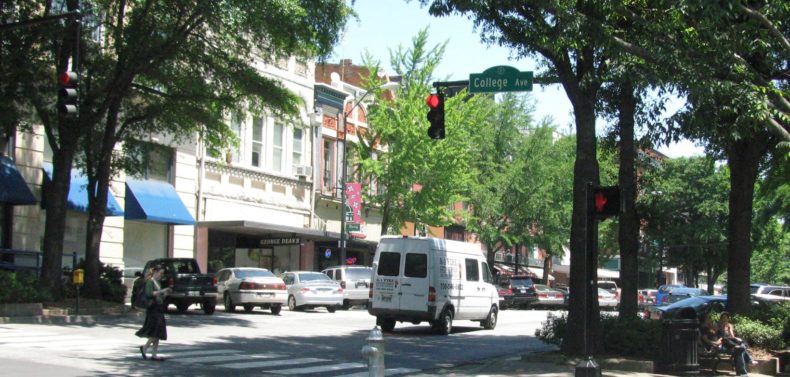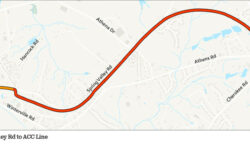A study by the UGA Carl Vinson Institute of Government commissioned by the Athens Downtown Development Authority confirms what everyone already knew: Downtown brings a lot of money to Athens.
The study found that downtown accounts for 6.5 percent of the property value in Athens and 8.5 percent of the workforce, despite encompassing less than 1 percent of the city’s area. Downtown had a $290 million economic impact in 2015, including 3,100 jobs and $100 million in payroll.
And that doesn’t include UGA students’ spending. “The literature is full of articles about how difficult it is to survey university students,” the Vinson Institute’s Wes Clark told the ADDA last week. “It’s a hard thing to do.”
All that economic activity generated $3.3 million in property tax revenue, $3.9 million in sales taxes, $1.8 million in hotel/motel taxes, $555,000 in alcoholic beverage taxes and $773,000 in business and alcohol license revenue for the county—a total of more than $10 million. About 60 percent of those taxes are paid by out-of-towners, according to Clark.
The study will be used to entice businesses to locate downtown, as well as prove that it’s more than just student housing and bars, ADDA Director of Planning and Outreach David Lynn said. “You hear that downtown Athens is a very vibrant and dynamic place,” he said. “Well, what does that mean to someone who’s opening a business here?”
Lynn also briefly outlined other projects ADDA staff and interns are working on, including wayfinding signs, the possibility of a tax allocation district to earmark tax revenue from new development for downtown infrastructure, streamlining the permitting process for special events, a small-business incubator, incentives for new businesses, high-speed fiber internet and parking. He’s pushing for a study to determine if downtown needs another parking deck, and if so, where to put it. Board members said they’re already convinced of the need for more parking, but Lynn said the study would help sell the idea to voters and taxpayers who’d fund it. However, the board lacked a quorum at the June 13 meeting.
Like what you just read? Support Flagpole by making a donation today. Every dollar you give helps fund our ongoing mission to provide Athens with quality, independent journalism.









